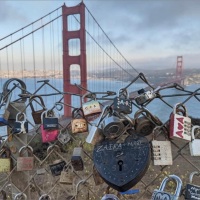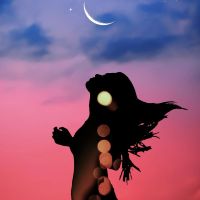Ab ke hori, let’s go back in time when the earth and the sky were not polluted by men and machine; when the dusty pathways running through the green pastures, in the season of spring, would be strewn with colours of different shades – red, green, blue, white, yellow, ochre; when the sky would be hazed by the flying fragrant abeer and gulaal; when colours would be made out of homemade vegetable dyes, plants, leaves, crushed petals, pollens etc.; when holi would not be a day’s celebration but be preceded by months ‘ preparations; when the benevolent monarch would open the doors to his royal court to all his subjects, rich or poor; when people would be dressed in their colourful best and dance and sing in unison “phagwaa brij dekhan ko chalo rii” , visiting one household to the other, pulling out the members one by one, smudging powdered colours all over, drenching them with pichkaari full of coloured water, munching meethais, embracing each other and cheering loudly “holi hai” !!!!!!!!!! In short, when life was simpler and holi was celebrated in its true essence sans hooliganism.
I remember last to last year, we had gone to attend a Hori Music Concert held at the back gardens of Hotel Ashoka under an ancient and huge Ashoka Tree. As Pundit Cchainulal Mishra, the Thumri Maestro, strummed his Sur Bahaar and bestowed life to his immortal Hori Thumris, the atmosphere was automatically electrified and charged with joyous and mellifluous vibrations. We sat on the stone steps, surrounding the tree and listened to him mesmerized, as dusk deepened into evening and evening crooned thousand Hori Leelas into the night’s ears. The sky became a network of sparkling stars and a beaming moon regally presided over the nocturnal darbaar. But astonishment abounded when Punditji finished his first rendition and the birds nesting in that stooping tree above, laden with an intricate filigree of branches and leaves, started chirping all at once, as though applauding unanimously the ethereal melodies of Raas Leela vocalized by Punditji.
Punditji’s thumris were followed by Quwwalis by Warsi Brothers. It was here that for the first time I learnt that in ancient times, the Dargas and Mosques held special Hori Quwwali sessions ushering in the Spring Festival. Hearing this, the blood baths and brouhaha over fundamentalism and religious issues seemed all the more meaningless and futile!
As I write this blog, a few lines of the poet Brahmananda floating in the air creep into my ears involuntarily:
“Kaisi hori machaai Krishana Kanhai Acharaja lakhiyo na jaai
Ek samay Sri Krishna Prabhu ko hori khelana mana aayi
Ek se hori mache nahin kabahu yaate karun bahutaai
Yehi Prabhu ne thaharaai, Kaisi hori machaai”
These lines refer to the infinite rounds of hori played by the Lord with his devotees in unison wherein the man-made narrow divides dwindle to dust!
“Paanch bisaya kii gulaal banaakar beech bramhanda udaayii
Jina jina nayana gulaal padi waha sudha budha saba bisraayii
Nahin sujhata apanaaii, kaisi hori machaayi”
Set in Raag Kaafi, the Hori (sang during Holi), describes the eternal leela of the Lord and his unique way of showing the path of the Ultimate Truth through innocent and impartial love in the form of abeer and gulaal.
Once bathed in the swirls of the divine abeer/gulaal, the devotees are rid of all moha-maaya and filled with such untainted piety and sublime love for their fellow brethren that there is no scope for hatred, violence, distrust and misgivings left in their pious hearts.
Ab ke hori, lets play like the Lord plays hori with his devotees!
Have a safe, cheerful, colourful and all embracing Holi!!!












As a South Indian, I am dead against the rough and crude holi played by the hooligans. But, what a lovely,culturally rich picture you have painted, Geetha with soothing music palpable in the background. Lovely piece.
LikeLike
Vimla, After a long time. Thanks for the visit! Regards
LikeLike
Thanks for comparing the true sense of holi of the earlier time and now. Well done!
LikeLike
Thanks Lakshmi!
LikeLike
Oh… I still remember the good ol’ days of frolic and festivities! I was in Bhopal and we used to attend some cultural events and gatherings. My father had a great interest in classical music so we also began to understand and evaluate good things from early childhood. On such festivals my father would always open our old gramophone and play some thumris or shehnai.
Personally, I have always stayed away from the हुड़दंग of holi. Now I see that many a people are returning back to old simplicity what has already been lost can’t be built again. There’s no sweetness of home-made sweets and personal greetings.
Well… happy holi! I can hear the children making fun outdoor!:)
LikeLike
Thanks Nishant and welcome to my zone. I too am averse to the “hurdang” of Holi.
But the Holi that I have described is the way its played in Shantiniketan at Guru Dev’s Aashram. My father used to religiously visit the same while in Kolkata.
I am glad to hear that you are classically attuned. Not many people are. The pads that I have quoted are from a Kafi Hori Thumri by the poet Brahmananda.
Thanks for the peep in and the words of appreciation and Happy Holi to you and your family!
LikeLike
I am so unfamiliar with your culture – but my friend George is traveling extensively in the East and is currently soaking up all of India he possibly can. He is with an Indian friend who is guiding him through traditions, etc. I’m going to send him a link to your blog in hopes he can learn even more!
Thanks for a lovely read. Amy
LikeLike
Holi/Hori is a traditional festival of colours ushering in the spring season. During this festival, we play with a lot of powdered and water colours. It is a very colourful festival filled with joy and fun. In olden times, the colours used were organic. Now synthetic colours have replaced them leading to dermatological problems.
On this day we visit our neighbours, friends and relatives, smudge and drench them with colours, hug and cheer loudly, munch sweets, sing and dance. But lately a lot of hooliganism has crept into the festival which is very, very unfortunate. There are also instances of blood bath in the name of holi.
The message of the festival is strengthening of fraternal bonds – forgetting enmity and embracing all with love irrespective of caste, creed, religion, language and all other man-made barriers. The festival can be traced back to ancient times and connotations of divine love embedded therein.
My entreaty to my country men is to celebrate the festival in its true essence the way it used to be played in olden times, rising above the narrow confines of prejudices, petty hatred and unending violence and upholding the sublimity of human love, unity, peace and universal brotherhood.
The poems are in a particularly rustic dialect which is a part of our literary tradition. Our country is vast. So are its culture, religious beliefs and philosophies. The concert that I have mentioned is of our Indian Classical Music which is again very rich in heritage. Thumris and quwwalis are various forms of musical compositions. The latter form, especially, has traveled from ancient Persia and are largely sung in Mosques and Masjids on various occasions.
While Holi/Hori is a predominantly Hindu festival, singing hori quwwalis during the ocassion, therefore, transcends the boundaries of religion, especially, the Hindu-Muslim divide.
I am extremely happy that you are taking such keen interest in and reading all my blogs.
Much obliged
Thanks
Have a good day (Its midday here)
LikeLike
Finally got around reading this one. Sorry that I was too busy to spend sometime to read this but I remember that concert, the birds chirping, and how the qawallis that followed were beyond what any of us had expected. One of the moments that I always get reminded of around the time of holi. 🙂
LikeLiked by 1 person
Yes, that was quite an unforgettable incident. Good to find you here bringing in the whiff of those good old times. Love
LikeLike